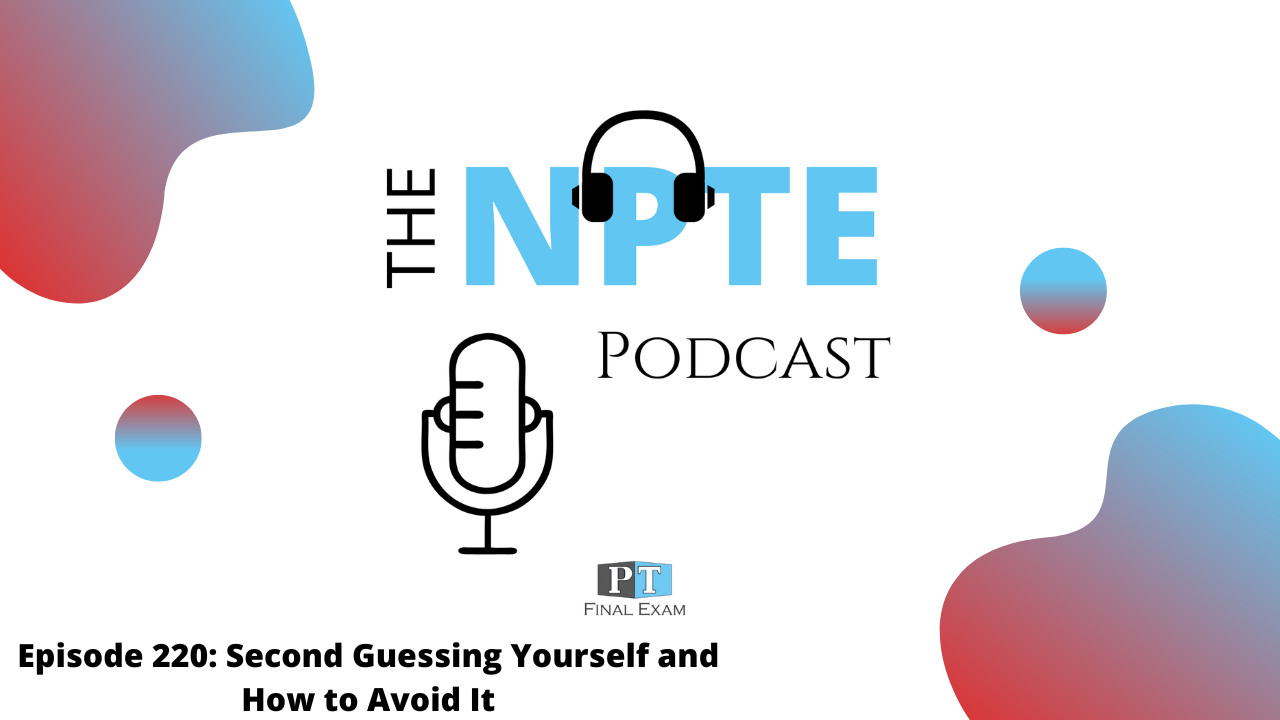Second Guessing vs. Double Checking on the NPTE

Second-Guessing vs Double-Checking
Definition of terms:
Second-Guessing: The act of reading a question and artificially placing an external bias or situation that is not actually present in the context of the question.
:to criticize or question actions or decisions of (someone) often after the results of those actions or decisions are known
Usually, these second-guessing thoughts take the form of, “What if …?” or “What about …?”
Second-guessing is the act of criticizing your own thought process to the point of not trusting your logical brain to be able to find the correct answer.
In the context of a multiple-choice exam, the problem arises when you ‘second-guess’ your selected answer. You start to ask yourself:
- “What if the patient really had additional pain?”
- “What about the random case that I heard about one time?”
- “What would happen if there were XYZ other condition present like there could be?”
With second-guessing, you get stuck in the hypothetical world of what is not actually in the question.
Double-Checking: Re-reading and re-checking a question to make sure that no information was ignored or unaccounted for.
:a careful checking to determine accuracy, condition, or progress especially of something already checked
Double-checking on the other hand is a careful re-reading of content to make sure that you have provided the most accurate answer to the question.
Every-day examples include double checking to make sure you have your car keys as you walk out the door or double checking that you are sending a text message to the correct number.
Should I Change My Answer Choice on the NPTE?
The short answer is that yes, you should change your answer choice if there is evidence to support the change.
One study suggested that in answers that were changed on a multiple-choice exam, >50% were from wrong-to-right and only 25% were from right-to-wrong. That left the final 25% from wrong-to-wrong.
When evaluating multiple-choice questions on the NPTE, consider the answer options carefully on change your answers when evidence supports your change.
If the question is entirely unfamiliar to you and you are simply taking a 25% guess, often your first instinct can be helpful even if you can’t articulate the reason why exactly.
When you have a question for which you do not know the answer, do your best to eliminate any outliers or otherwise irrelevant answer options. This significantly increases the odds of you getting it right.
Once you have selected an option as a guess, you will be better served to simply move on to other questions that you are more likely to get correct.
